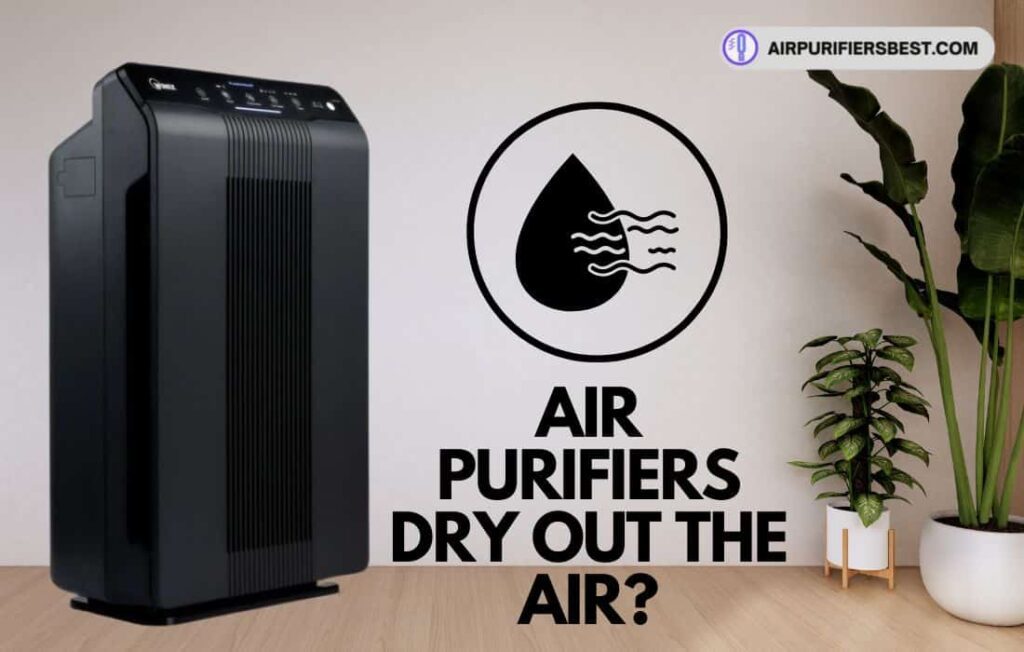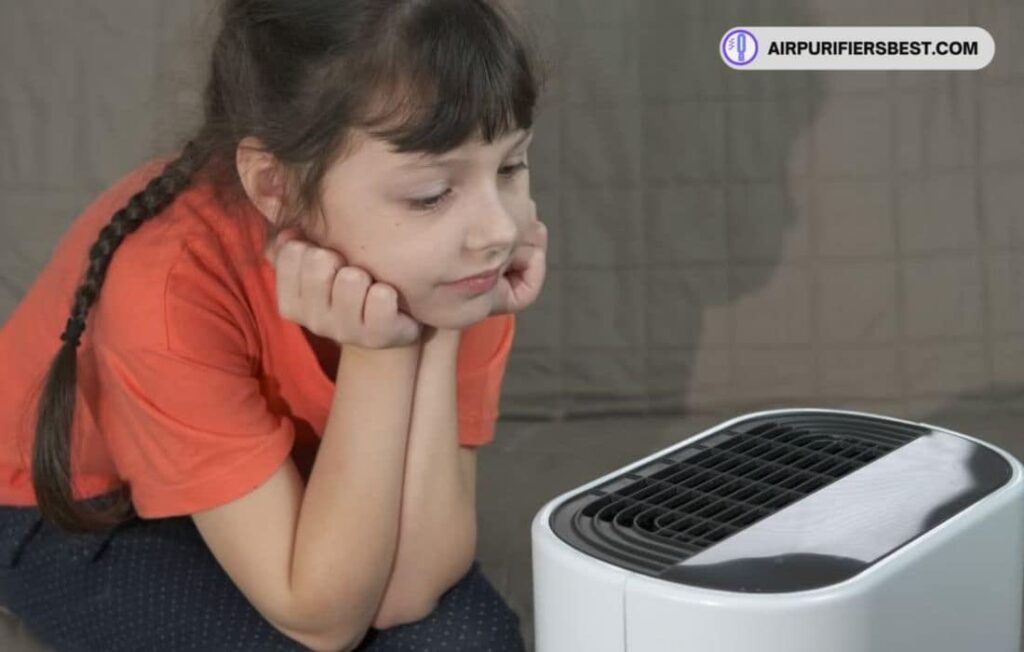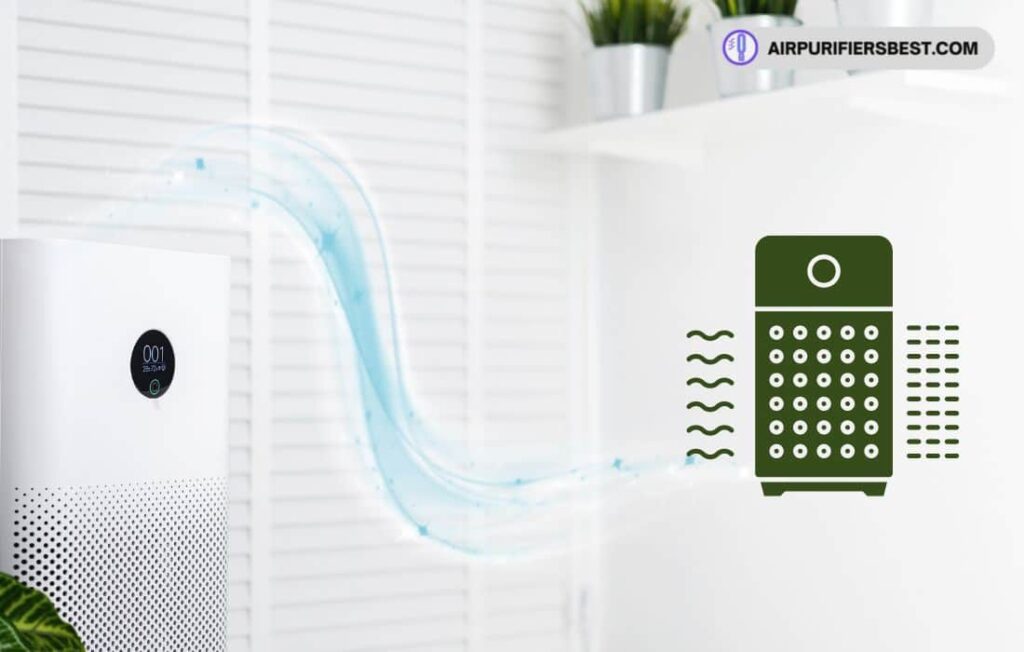Most air purifiers are used in a room for good quality. Some people feel like the humidity in the house can be reduced by an air purifier. however an air purifier in reality, in purifier moisture from the air can’t be separated because it has no ability .solid particles can only catch by HEPA special filter that is used to make air healthy and clean. generally, air purifiers do not have the ability to remove moisture from the air.
However, an air purifier can make the air drier. when your air purifier especially running too fast, it means it is too big for your room. in the winter season air purifier is used As a replacement for ventilation .air purifier is a very familiar household appliance because it is increasingly serious air pollution. air purifier actually cants dry out the air. like a dehumidifier, its function does not work to remove moisture from the air. it can transform decompose and absorb various air pollutants like dander, pollen dust, or many other substances that can make the air dry. air purifiers just play a role in window ventilation, they can just purify the air or its indoor humidity did not affect air purifiers. Air purifier in the activated carbon filter, having to pay a slight impact on humidity, the impact will be very small that can be ignored.
Is the air purifier feel dry?
Everywhere, in an air purifier humidity is present. the humidity affects greatly the environment and how you feel inside the room. However, air purifiers are not designed to circulate the air. They pull air into the device, but the speed of airflow is greatly reduced by the filters. If you feel like the airflow in your room contributes to a feeling of dry air, it could be because your air purifier is set to a fan speed that is too high for your comfort. Additionally, the air purifier could be too good for the room you are using it in. This can be the case when your room is small while the purifier is designed for large rooms. Its function isn’t to remove moisture from the air as a dehumidifier would. In fact, it improves the air by removing the things that would make the air dry like dust, pollen, and dander. The air purifier will not affect the indoor humidity, it just purifies the air, as the role of window ventilation. The activated carbon filter in the air purifier will have a slight impact on humidity. The impact is very small, which can be ignored. Only clean air could come from the filter. The filter element can effectively filter the dust, particles, and peculiar smell in the air, and the purified fresh air is blown into the room through the fan. So the answer to does an air purifier dry out the air is no. Air purifiers do not reduce indoor humidity, they can only improve indoor air quality.
Most air purifiers do not have a reservoir and heating coil mechanism to draw moisture; hence the room dampness level will remain the same. airborne pollutants that pass through the filters like dust, mites, mold, pet dander, germ, pollen, smoke, chemical gases, and odors.
Air purifiers and dehumidifiers can use both together?
An air purifier does not change the moisture content of the air, but it does a whole lot of other things. Namely, an air purifier removes harmful particles and gases from your air, making it cleaner and safer to breathe. An air dehumidifier comes with a tank that is getting filled with the water extracted from the air. You can simply empty the water tank once it is full. If you are looking for a good dehumidifier, I highly recommend checking out sylvane.com, a company that specializes in indoor air quality products. An air purifier passes air through a filter. It then captures the particulates and chemical gases in the air. Clean and pure air comes out at the other end. If you want to get as many pollutants filtered through the air, an air purifier with a carbon filter and HEPA filter is a must. An air purifier passes air through a filter. It then captures the particulates and chemical gases in the air. Clean and pure air comes out at the other end. If you want to get as many pollutants filtered through the air, an air purifier with a carbon filter and HEPA filter is a must.
A humidifier is especially useful in winter when fresh outdoor air is heated indoors resulting in a drop of air humidity to uncomfortable levels. In hot, dry desert climates, air humidity is naturally low. To increase the humidity of your indoor air without the use of a humidifier, you can install a tray of water near your heating system. In this way, when the air is heated, the water will evaporate and increase the moisture content of the air.
An air purifier passes air through a filter. It then captures the particulates and chemical gases in the air. Clean and pure air comes out at the other end. If you want to get as many pollutants filtered through the air, an air purifier with a carbon filter and HEPA filter is a must. However, you should avoid placing them too close together because the moisture from the humidifier could clog filters or otherwise limit the effectiveness of the air purifier. For instance, if a HEPA filter were to be consistently damp because the output of a humidifier was directed into it, the dampness could promote the growth of mold or bacteria on the filter. This can be avoided by placing them at opposite ends of the room. To operate effectively, both air purifiers and humidifiers need to be properly maintained. For a humidifier, this means frequent cleaning.
Add humidity with dry indoor air:
Methods:
- Air conditioner and fan dependency reduce – Both appliances are known to reduce moisture in a room in exchange for cool air. When not possible, place a humidifier in the same room to balance out the lost moisture in the air.
- Room ventilation and air circulation improve – Opening doors or windows, particularly during the summer. Doing so will prevent the indoor air from being stale and dry.
- Shorten shower time – A hot steamy shower might feel great on a cold day, but the excess heat will dry out the air quicker. Instead, opt for a cold shower that is good for your skin and increases the moisture in the air by leaving the bathroom door open.
- Hang clothes for drying indoors – Do it on a drying, garment, or hanging rack instead of relying on a dryer that uses a lot of energy. The excess moisture will evaporate and add dampness to your home.
- A classic bowl of water – By leaving a big bowl full of water out, the water will evaporate and humidify the room. Do note that it is not as effective as a humidifier and increases the chance of water spillage, especially if you have children or pets at home.
- Indoor houseplants – The process of transpiration will evaporate water vapour from flowers, leaves, and stems. You will need a lot of house plants to make any difference with dry air.
Add humidity in homes:
Run a humidifier:
Fill it up with water and then switch it on after your air purifier. This way, it releases moisture into the air to combat the dry air feeling. A humidifier can help if your mouth, nose, and skin are feeling dry and itchy. However, you must keep these humidity levels in check (30-50%) to avoid fungi like mold and mildew.
Hydrated:
Applying moisturizer to your skin is another way to avoid the effects of dry air in your home.
Seal to your houses:
During the winter, cold air from outside makes your home feel drier. It’s possible that some of it are seeping into your home. Check for gaps and cracks around doors, windows, and frames to find air leaks. . Improve your home insulation and fix any leakage in attics, windows, and doors so you will not have to rely on the thermostat to turn up the heat.
Slow down fans:
However, the air leaves the device at a slower rate due to the filter action. This means that air is circulating in your house at a fast pace, causing it to feel drier. Slowing your air purifier fan means you circulate air at a slower rate. Therefore, the air cools less and eradicates the feeling of dry air.
FAQS:
Why do I recommend using an air quality monitor?
Although an air purifier is a wonderful tool, ventilation is still your best weapon against indoor air pollution. Therefore, measuring the air with a good air quality monitor and ventilating when necessary is an excellent alternative to an air purifier.
What is the ideal percentage of indoor humidity level?
I recommend keeping humidity levels between 30 and 60% for comfortable indoor air. Furthermore, they recommend more precise humidity levels of 45 to 55 % for people who require the exact perfect humidity to combat allergies or illness.
What does an air dehumidifier do?
An air dehumidifier is specifically designed to remove moisture from the air. You can set the device to your preferred moisture level, and it will reduce air moisture to this level and maintain it.
Does an air purifier reduce humidity?
Well, the short answer is no. An air purifier does not have the ability to remove moisture from the air.
Conclusion:
Generally speaking, air purifiers do not have the effect of dehumidifying and drying air unless the relevant function is specified. If the filtration work principle is like air conditioning, that is, there is a filter layer and then cooling. It is necessary to keep the house ventilated and dry. The temperature inside the general bedroom is maintained at 20℃~25℃, and relative humidity maintained at 50%~60% is the most comfortable. When the relative humidity is less than 30%, it will feel too dry, which will lead to dry, sore throat, anxiety, upset, etc




